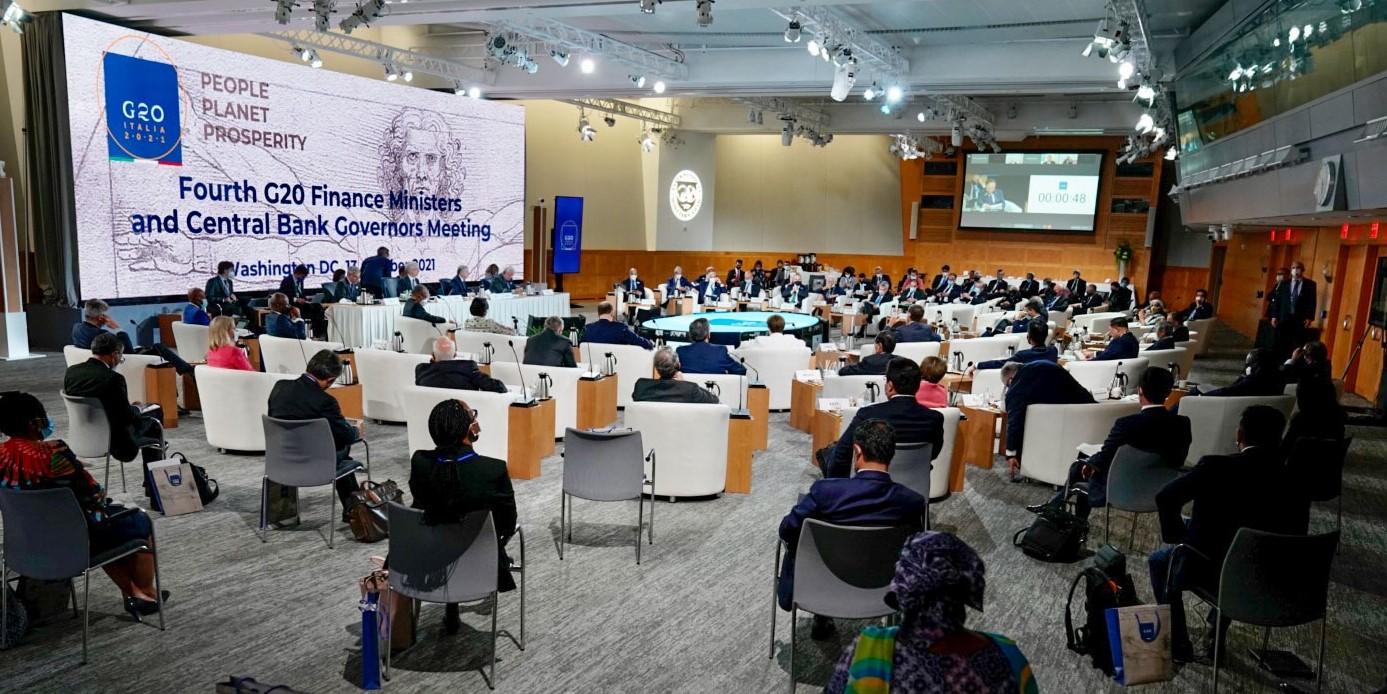Statement by Achim Steiner, UNDP Administrator
At the conclusion of the G20 Ministers of Finance and Central Banks Governors Meeting under the Italian Presidency
October 13, 2021

4th G20 Finance Ministers and Central Bank Governors Meeting, Washington
The G20 Italian Presidency has added decisive momentum to the COVID-19 response in 2021 with the Debt Service Suspension Initiative benefiting 46 low-income countries that requested it; the Common Framework for debt treatments currently providing 3 countries with a framework for debt restructuring; the IMF issuing a historic $650 billion general allocation of Special Drawing Rights; and an international tax deal, agreed by 136 countries, providing a floor for multinational taxation around the world.
In addition, the establishment of the G20 Sustainable Financing Working Group, co-chaired by China and the US, and supported by UNDP, merits special mention as its charts a roadmap for future work on financing standards and alignment to the 2030 Agenda for Sustainable Development.
Nevertheless, the future still looks uncertain with the risk of a two-track recovery from the pandemic that could deepen global inequalities and tip millions of people into poverty.
The IMF’s latest World Economic Outlook highlights that the only economies projected to return to 2019 levels of GDP in 2022 are high-income economies. Low-and-middle income economies, as a group, are expected to return to pre-pandemic levels only by 2023 or 2024.
As the G20 Summit arrives, there are two critical issues on the global radar:
Vaccine inequity is driving growth divergence, supply chain disruptions and inflationary pressures. A slower and delayed vaccination rollout in low and middle-income countries has left them vulnerable to COVID-19 variants, new surges of the virus and a slower recovery out of the crisis. As the Global Dashboard for Vaccine Equity shows, in high-income countries, 60.93% of people have been vaccinated with at least one dose of the vaccine. That figure is a lowly 3.72% in low-income countries.
The United Nations supports urgent action to extend vaccine coverage to 40% of the global population by end of 2021 and 70% by 2022.
The Multilateral Leaders’ Task Force, comprised of the heads of the WHO, WTO, WBG and the IMF, has made specific recommendations to release supplies, distribute vaccines, and address financing gaps in favour of developing and emerging economies. We urge the G20 Summit Communique to adopt concrete commitments in support of this 6-point plan.
The second issue is the climate crisis.
COP26 is imminent, and a ‘code red’ for humanity is in place. A $100 billion a year commitment by developed countries in climate financing for climate mitigation and adaptation in developing countries is within reach, but more can be done. Adaptation costs in the Global South are currently $16.7 billion a year yet they are projected to rise to as much as $300 billion per year by 2030.
At a time of immense fiscal constraints and debt distress imposed by COVID-19, expanding access to adequate and predictable funding will allow developing countries to advance a green, sustainable future -- from decarbonization and rolling out clean energy to investing in social protection and modern healthcare.
The endorsement of the first-ever G20 Sustainable Finance Roadmap, developed by the G20 Sustainable Finance Working Group, demonstrates how the G20 can take up the baton to implement a game-changing Sustainable Development Goals investment “push” in critical areas like climate action. UNDP is pleased to provide the secretariat to this working group and remains committed to continuing its support to this work with the Indonesian G20 presidency next year.
We now stand at a crossroads for a collective future, where we must finally draw a line under the zero-sum approach of economy versus environment or health versus economy. In many ways, the decisions taken at CBD COP 15, and COP26 must represent an unambiguous signpost towards that greener, more sustainable future for all.

 Locations
Locations